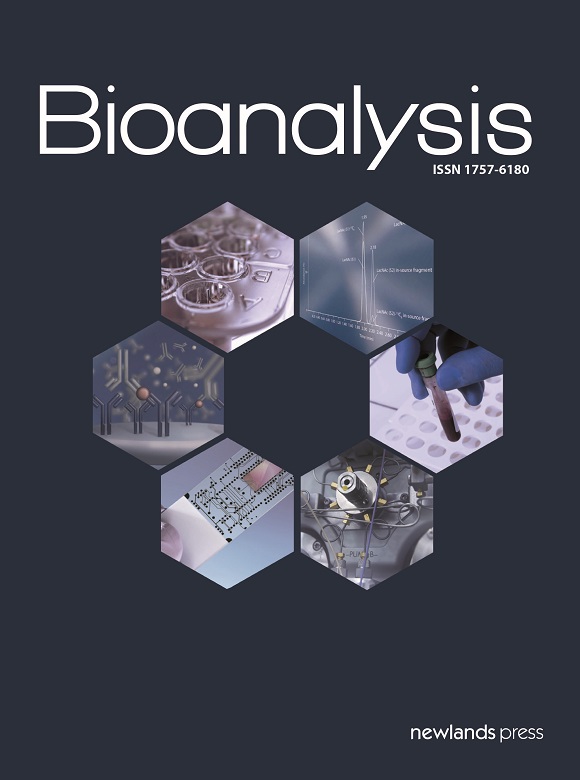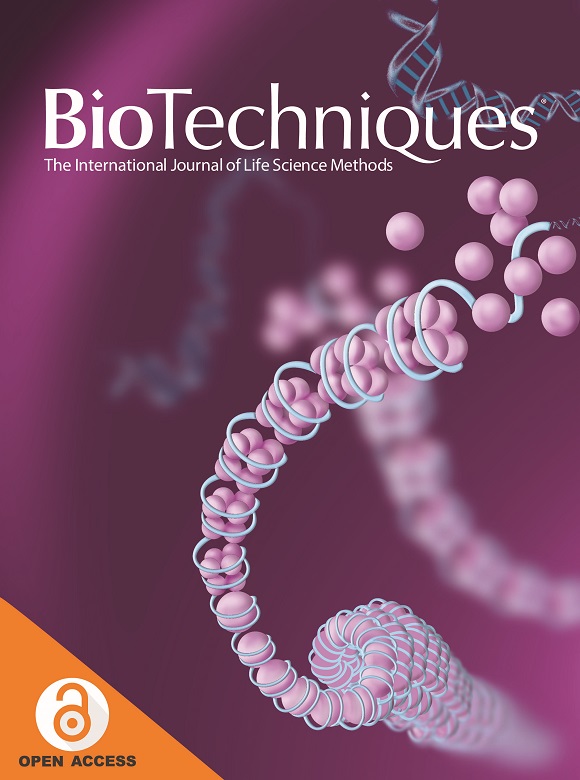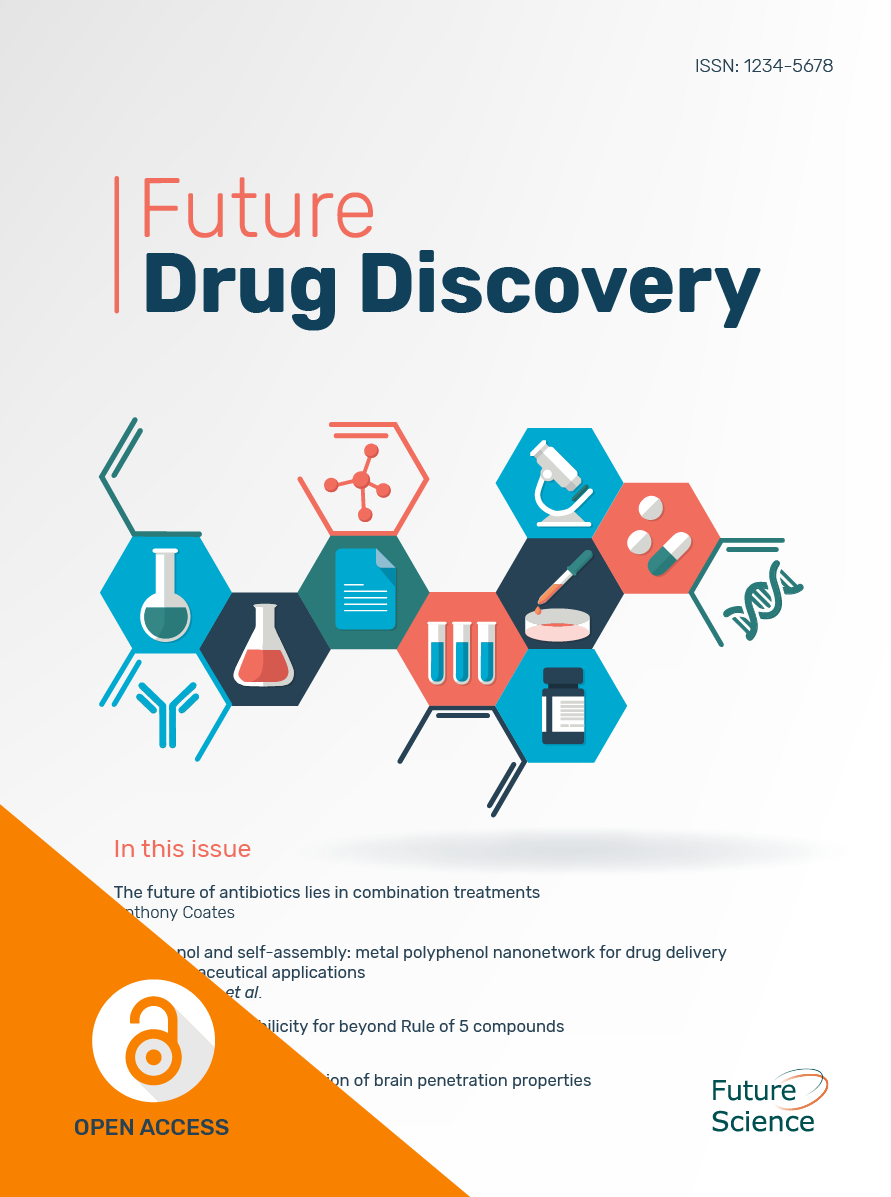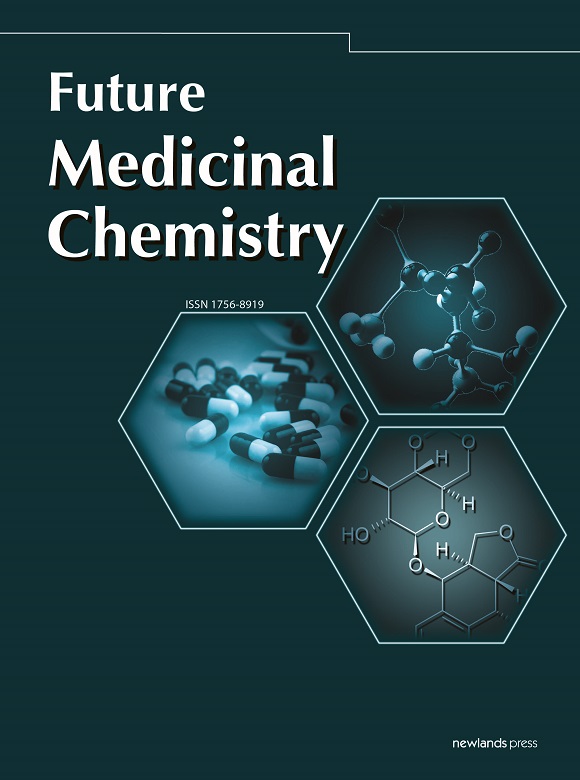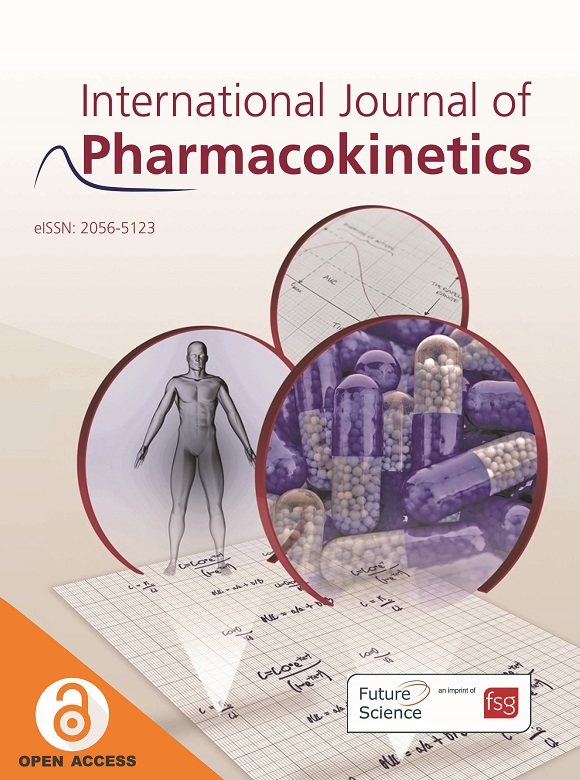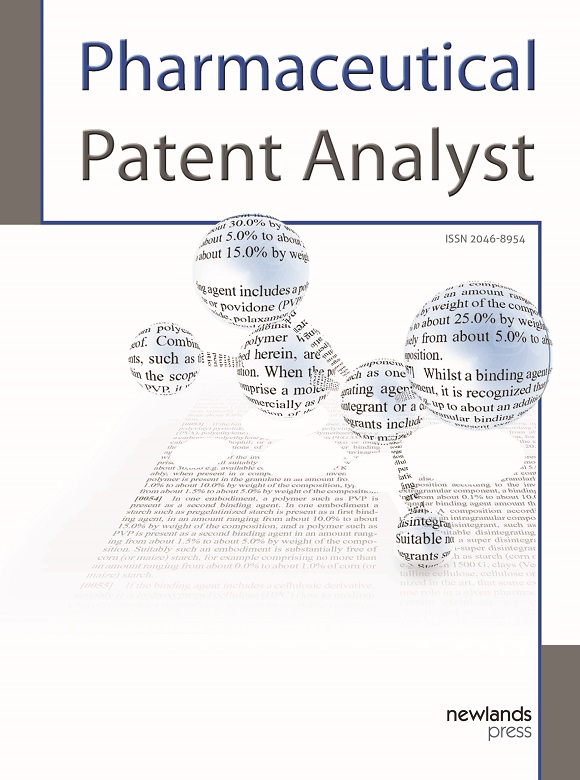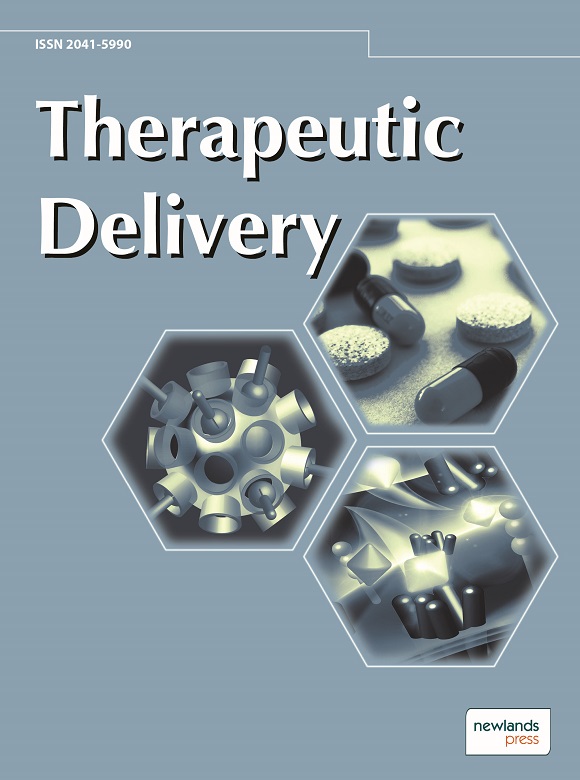Abstract
Inhibition of the PD-1/PD-L1 pathway is a target for the development of new therapies. US10710986 patent describes a small molecule that targets PDL-1/PD-1 interactions and triggers antitumor activity against colorectal cancer. However, it does not describe biological assays that allow us to suppose that this small molecule may be active in other types of cancer. So far, there are no reports of clinical trials to evaluate the safety, toxicity and efficacy, but it will be of great interest to analyze in the future if this compound surpasses the action of therapy in cancer.
Papers of special note have been highlighted as: • of interest; •• of considerable interest
References
- 1. . Regulation and function of the PD L1 checkpoint. Immunity 48, 434–452 (2018).
- 2. . PD-L1 expression and PD-1/PD-L1 inhibitors in breast cancer. Bull Cancer 105(3), 263–274 (2018).
- 3. PD-L1 expression and its regulation in lung adenocarcinoma with ALK translocation. Interdiscip. Sci. Comput. Life Sci. 11(2), 266–272 (2019).
- 4. Expression of programmed death ligand 1 (PD-L1) is associated with metastasis and differentiation in gastric cancer. Life Sci. 242, 117247 (2020).
- 5. PD-1/PD-L1 pathway in breast cancer. Oncol. Res. Treat. 40(5), 294–297 (2017).
- 6. PD-1/PD-L1 dependent immune response in colorectal cancer. J. Cell. Physiol. 235(7–8), 5461–5475 (2020).
- 7. . PD-1/PD-L1 axis in lung cancer. Cancer J. 24(1), 15–19 (2018).
- 8. . Atezolizumab: first global approval. Drugs 76(12), 1227–1232 (2016).
- 9. . Durvalumab: first global approval. Drugs 77(12), 1369–1376 (2017).
- 10. . Avelumab: first global approval. Drugs 77(8), 929–937 (2017).
- 11. . Checkpoint immunotherapy by nivolumab for treatment of metastatic melanoma. J. Cancer Res. Ther. 14(6), 1167–1175 (2018).
- 12. . Pembrolizumab: first global approval. Drugs 74(16), 1973–1981 (2014).
- 13. Toxicities of the anti-PD-1 and anti-PD-L1 immune checkpoint antibodies. Ann. Oncol. 26, 2375–2391 (2015).
- 14. Approaches to improve tumor accumulation and interactions between monoclonal antibodies and immune cells. MAbs 5(1), 34–46 (2013).
- 15. Late-onset fulminant myocarditis with immune checkpoint inhibitor nivolumab. Can. J. Cardiol. 34(6), 812–e1 (2018).
- 16. Nivolumab-associated acute demyelinating encephalitis: a case report and literature review. Clin. Med. Res. 17(1–2), 29–33 (2019).
- 17. Anti-PD1 associated fulminant myocarditis after a single pembrolizumab dose: the role of occult pre-existing autoimmunity. Haematologica 103(7), e318 (2018).
- 18. Atezolizumab induced myocarditis on a background of cardiac amyloidosis. Am. J. Ther. 26(6), e795–e7 (2019).
- 19. Atezolizumab-induced encephalitis in metastatic lung cancer: a case report and literature review. eNeurologicalSci 14, 49 (2019).
- 20. Myocarditis with tremelimumab plus durvalumab combination therapy for endometrial cancer: a case report. Gynecol. Oncol. Rep. 25, 74–77 (2018).
- 21. . A case report of drug-induced myopathy involving extraocular muscles after combination therapy with tremelimumab and durvalumab for non-small-cell lung cancer. Neuroophthalmology 41(3), 140–143 (2017).
- 22. Drug-induced interstitial pneumonitis due to avelumab: a case report. Rev. Mal. Respir. 35(9), 978–982 (2018).
- 23. Small-molecule inhibitors targeting the PD-1/PD-L1 signaling pathway. Acta Pharmacol. Sin. 42(1), 1–9 (2021). • Summarize small-molecule inhibitors of PD-1/PD-L1 based on different therapeutic approaches: blocking direct interaction between PD-1 and PD-L1, inhibiting transcription and translation of PD-L1 and promoting degradation of PD-L1 protein.
- 24. . Small-molecule immuno-oncology therapy: advances challenges and new directions. Curr. Top Med Chem. 19(3), 180–185 (2019).
- 25. . Development of small-molecule immune checkpoint inhibitors of PD-1/PD-L1 as a new therapeutic strategy for tumour immunotherapy. J. Drug Targeting 27(3), 244–256 (2019).
- 26. Small molecules as PD-1/PD-L1 pathway modulators for cancer immunotherapy. Curr. Phar. Des. 24(41), 4911–4920 (2018).
- 27. Peptide-based and small synthetic molecule inhibitors on PD-1/PD-L1 pathway: a new choice for immunotherapy? Eur. J. Med. Chem. 161, 378–398 (2019).
- 28. Development of inhibitors of the programmed cell death-1/programmed cell death-ligand 1 signaling pathway. J. Med. Chem. 62(4), 1715–1730 (2018).
- 29. A patent review on PD-1/PD-L1 antagonists: small molecules, peptides, and macrocycles (2015–2018). Expert Opin. Ther. Pat. 28(9), 665–678 (2018). •• Discusses patent applications on small molecules classes and peptides targeting PD1/PD-L1
- 30. Development of the inhibitors that target the PD-1/PD-L1 interaction-a brief look at progress on small molecules, peptides and macrocycles. Molecules 24(11), 2071 (2019).
- 31. Bioactive macrocyclic inhibitors of the PD-1/PD-L1 immune checkpoint. Angew. Chem. Int. Ed. Engl. 56(44), 13732–13735 (2017).
- 32. Gilead Sciences:
US10710986 (2020). - 34. Tumor antigen-specific CD8 T cells infiltrating the tumor express high levels of PD-1 and are functionally impaired. Blood 114(8), 1537–1544 (2009).
- 35. Expression of PD-L1 and prognosis in breast cancer: a meta-analysis. Oncotarget 8(19), 31347 (2017).
- 36. . PD-L1 expression is related with prognosis of small cell lung cancer. Zhonghua Zhong Liu Za Zhi. 41(3), 214–217 (2019).
- 37. . Efficacy of PD-1/PD-L1 blockade monotherapy in clinical trials. Ther. Adv. Med. Oncol. 12, 1–12 (2020).
- 38. PD-1/PD-L1 axis regulation in cancer therapy: the role of long non-coding RNAs and microRNAs. Life Sci. 256, 117899 (2020).
- 39. Clinical and Recent Patents Applications of PD-1/PD-L1 Targeting Immunotherapy in Cancer Treatment-Current Progress, Strategy and Future Perspective. Front. Immunol. 11, 1508 (2020). •• Discusses clinical studies and patent applications related to PD-1/PD-L1 targeted therapy and progress in inhibitors of PD-1/PD-L1
- 40. University of Groningen:
WO2019008152 (2019). - 41. University of Groningen:
WO2019008154 (2019). - 42. University of Groningen:
WO2019008156 (2019). - 43. Abbisko Therapeutics:
WO2019149183 (2019). - 44. Shenzhen Chipscreen Biosciences:
WO2020043154 (2020). - 45. Shangai Maxinovel Pharmaceuticals:
WO2020088357 (2020). - 46. Bristol Myers Squibb:
US9872852 (2018). - 47. A small molecule antagonist of PD-1/PD-L1 interactions acts as an immune checkpoint inhibitor for NSCLC and melanoma immunotherapy. Front. Immunol. 12, 654463 (2021).
- 48. Antitumor activity of the PD-1/PD-L1 binding inhibitor BMS-202 in the humanized MHC-double knockout NOG mouse. Biomed. Res. 40(6), 243–250 (2019).
- 49. Immune checkpoint blockade mediated by a small-molecule nanoinhibitor targeting the PD-1/PD-L1 pathway synergizes with photodynamic therapy to elicit antitumor immunity and antimetastatic effects on breast cancer. Small 15(49), 1903881 (2019).

